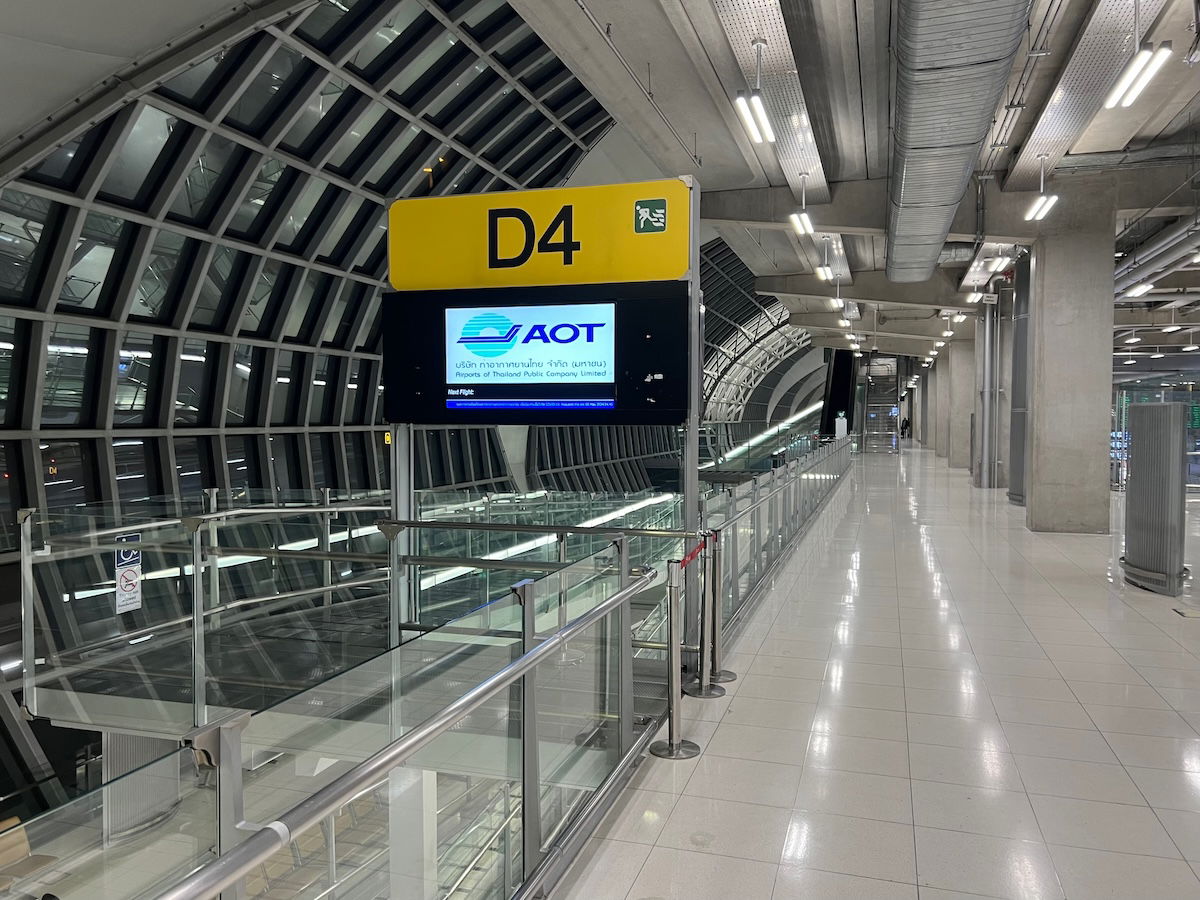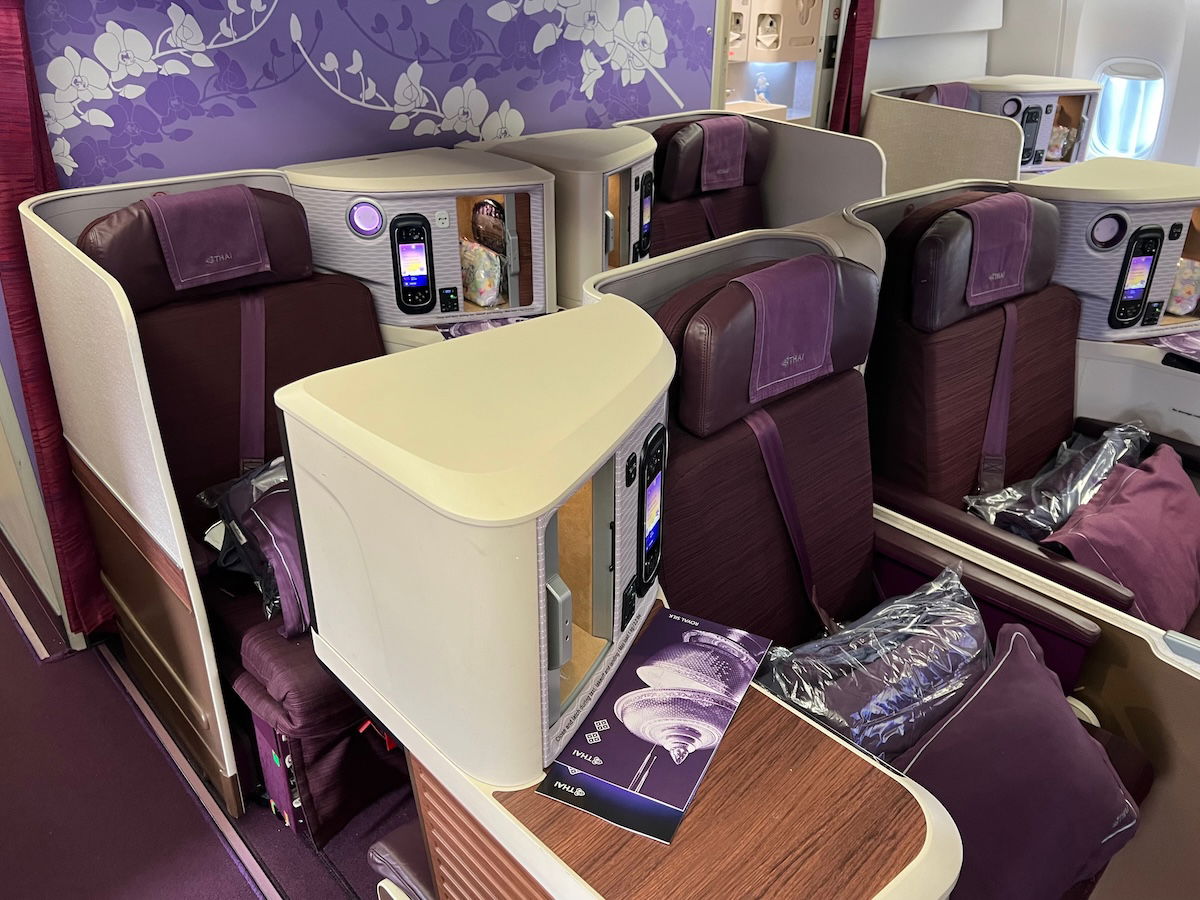The rights of airline passengers differ greatly around the globe, both in terms of duty of care and mandated compensation. Europe sets the gold standard for this, with its EU261 policy. There’s an exciting development, as Thailand has just rolled out a new compensation scheme for passengers. It’s a step in the right direction, though not quite as generous as what you’ll find in Europe.
In this post:
Thailand’s new airline passenger rights policies
As of Tuesday, May 20, 2025, the Civil Aviation Authority of Thailand (CAAT) has introduced new passenger protections. The level of protections offered differ based on the length of the delay, whether you’re traveling domestically or internationally, and the length of the flight. So, what can passengers expect?
For delays of at least two hours:
- Airlines have to offer passengers complimentary food and drinks, either directly, or in the form of a voucher
- Airlines have to provide passengers free communication, like access to phone calls or email
For delays of at least five hours:
- Airlines have to compensate passengers 1,200 THB (~37 USD) for domestic flights or 1,500 THB (~46 USD) for international flights, in cash, or the equivalent in frequent flyer points or credits
- Airlines have to provide passengers accommodation and transfers, if an overnight stay is required
- Airlines have to give passengers the option to cancel their flight for a full refund
For delays of at least 10 hours:
- Airlines have to provide passengers increased cash compensation based on the distance of the flight
- Airlines have to compensate passengers at least 2,000 THB (~61 USD) for a flight of up to 1,500 kilometers, 3,500 THB (~107 USD) for a flight of 1,500 to 3,500 kilometers, and 4,500 THB (~137 USD) for a flight of over 3,500 kilometers
For flight cancelations, passengers are entitled to the same compensation as a delay of over 10 hours, assuming the cancelation was only announced within seven days of departure. The exception is that this doesn’t apply if the cancelation is due to unforeseeable and unavoidable circumstances, or if passengers are offered alternative flights within three hours of the original time.

These passenger protections are a great development
It seems that Thailand intends to heavily promote its new consumer protections for air travelers, as a way of marketing itself as a destination with reliable air transportation. It’s interesting to see these protections, given that Thai Airways is government owned (at least as of now), so the government may be paying out much of this compensation.
I’m happy to see these new protections, though admittedly the compensation amounts aren’t that high, at least compared to Europe, where travelers potentially receive 600 EUR (~680 USD) compensation.
Ultimately the devil will be in the details when it comes to the execution of this policy. The cash compensation is based on issues not being due to extraordinary circumstances, so it’ll be interesting to see to what extent airlines try to get around that. The government insists it plans to hold airlines accountable, though let’s see if that’s actually the case.

Bottom line
Thailand has just rolled out new protections for air travelers. Depending on the length of the delay and the type of flight, passengers are entitled to duty of care (food, accommodation, transportation, etc.), plus some cash compensation. This is a great development, though I hope that airlines actually follow through on their commitments.
What do you make of Thailand’s new consumer protections for air travelers?



Can't expect a lower income / developing country to give the same as the EU or a developed place. At least they are providing something. The costs for the airline to provide it are also lower too. The problem is that the airline is allowed to provide points instead of cash. I would think that the airline's value of points and ours would be different.
@Ben
Europe is at risk to lose its gold standard.
The EU tries to make changes to EU261 which makes it almost useless. Monetary compensation should be lowered on longhauls despite not being raised for 20 years of inflation.
Thresholds of delays should be increased by a couple of hours and strikes of own airline staff etc. might not be covered.
Please help and raise awareness about the plans of the EU. One needs...
@Ben
Europe is at risk to lose its gold standard.
The EU tries to make changes to EU261 which makes it almost useless. Monetary compensation should be lowered on longhauls despite not being raised for 20 years of inflation.
Thresholds of delays should be increased by a couple of hours and strikes of own airline staff etc. might not be covered.
Please help and raise awareness about the plans of the EU. One needs to stop the airline lobbyists hurting consumer protection.
"Airlines have to compensate passengers ... in cash, or the equivalent in frequent flyer points or credits"
One brief remark regarding this: As per the document linked by Ben, it is not up to the airline to decide whether they issue a cash or points refund (since many will presumably try to weasel their way around issuing cash refunds in favor of points):
"(c) pay the compensation in cash to the passengers... The carrier...
"Airlines have to compensate passengers ... in cash, or the equivalent in frequent flyer points or credits"
One brief remark regarding this: As per the document linked by Ben, it is not up to the airline to decide whether they issue a cash or points refund (since many will presumably try to weasel their way around issuing cash refunds in favor of points):
"(c) pay the compensation in cash to the passengers... The carrier shall be obligated to inform the passenger of the terms, conditions, and restrictions associated with the use of the credit shell or travel voucher and shall obtain consent from the passenger prior to proceeding"
Compensation amounts are likely lower just due to Thailand being a far lower income and cost-of-living country, which is fine. It's a dual purpose: compensate people for airlines taking from their time, and pressure airlines to do run their operations more reliably. It's a good step in the right direction, though efficacy of enforcement remains to be seen.
The cancellation compensation seems to have a lot of easy outs though due to the "unforeseeable and...
Compensation amounts are likely lower just due to Thailand being a far lower income and cost-of-living country, which is fine. It's a dual purpose: compensate people for airlines taking from their time, and pressure airlines to do run their operations more reliably. It's a good step in the right direction, though efficacy of enforcement remains to be seen.
The cancellation compensation seems to have a lot of easy outs though due to the "unforeseeable and unavoidable circumstances" and the alternate flight offer. Sure you might be able to hop on a flight within 3 hours of the original, but now it's a 24 hour layover itinerary. Who's going to take that?